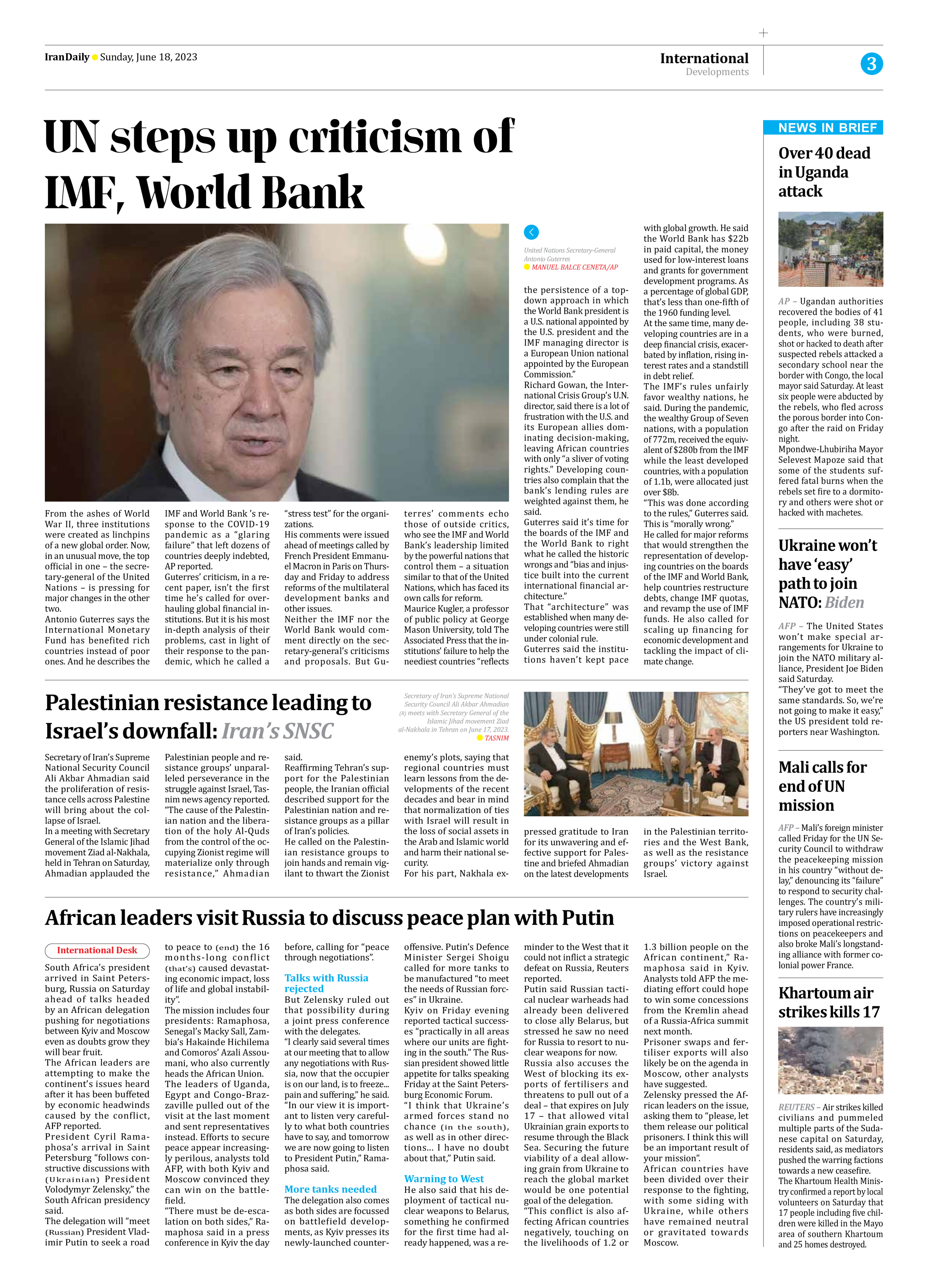
UN steps up criticism of IMF, World Bank
From the ashes of World War II, three institutions were created as linchpins of a new global order. Now, in an unusual move, the top official in one – the secretary-general of the United Nations – is pressing for major changes in the other two.
Antonio Guterres says the International Monetary Fund has benefited rich countries instead of poor ones. And he describes the IMF and World Bank ’s response to the COVID-19 pandemic as a “glaring failure” that left dozens of countries deeply indebted, AP reported.
Guterres’ criticism, in a recent paper, isn’t the first time he’s called for overhauling global financial institutions. But it is his most in-depth analysis of their problems, cast in light of their response to the pandemic, which he called a “stress test” for the organizations.
His comments were issued ahead of meetings called by French President Emmanuel Macron in Paris on Thursday and Friday to address reforms of the multilateral development banks and other issues.
Neither the IMF nor the World Bank would comment directly on the secretary-general’s criticisms and proposals. But Guterres’ comments echo those of outside critics, who see the IMF and World Bank’s leadership limited by the powerful nations that control them – a situation similar to that of the United Nations, which has faced its own calls for reform.
Maurice Kugler, a professor of public policy at George Mason University, told The Associated Press that the institutions’ failure to help the neediest countries “reflects the persistence of a top-down approach in which the World Bank president is a U.S. national appointed by the U.S. president and the IMF managing director is a European Union national appointed by the European Commission.”
Richard Gowan, the International Crisis Group’s U.N. director, said there is a lot of frustration with the U.S. and its European allies dominating decision-making, leaving African countries with only “a sliver of voting rights.” Developing countries also complain that the bank’s lending rules are weighted against them, he said.
Guterres said it’s time for the boards of the IMF and the World Bank to right what he called the historic wrongs and “bias and injustice built into the current international financial architecture.”
That “architecture” was established when many developing countries were still under colonial rule.
Guterres said the institutions haven’t kept pace with global growth. He said the World Bank has $22b in paid capital, the money used for low-interest loans and grants for government development programs. As a percentage of global GDP, that’s less than one-fifth of the 1960 funding level.
At the same time, many developing countries are in a deep financial crisis, exacerbated by inflation, rising interest rates and a standstill in debt relief.
The IMF’s rules unfairly favor wealthy nations, he said. During the pandemic, the wealthy Group of Seven nations, with a population of 772m, received the equivalent of $280b from the IMF while the least developed countries, with a population of 1.1b, were allocated just over $8b.
“This was done according to the rules,” Guterres said. This is “morally wrong.”
He called for major reforms that would strengthen the representation of developing countries on the boards of the IMF and World Bank, help countries restructure debts, change IMF quotas, and revamp the use of IMF funds. He also called for scaling up financing for economic development and tackling the impact of climate change.







